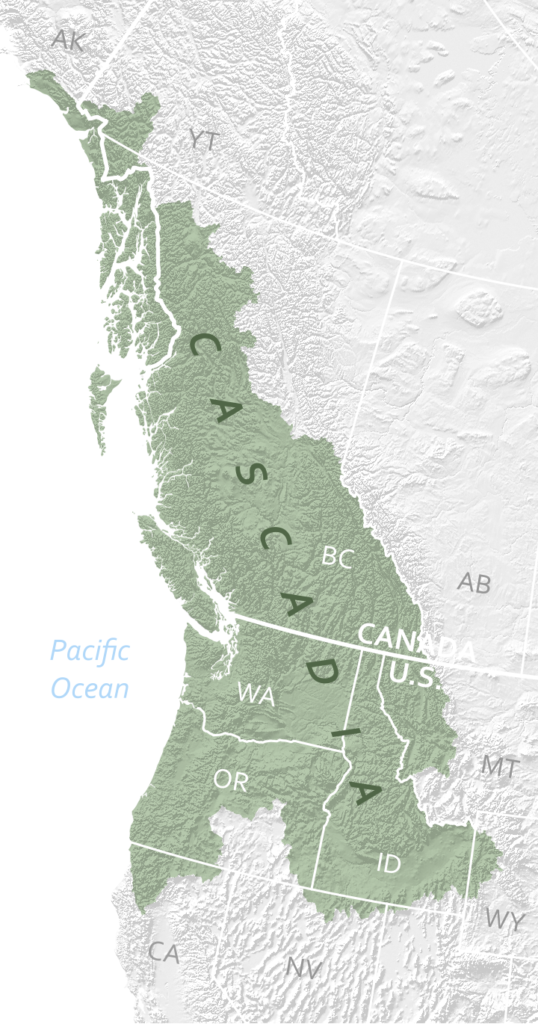INSTITUTE ORIGINS
Rationale
Humanity faces an array of grave, long-term challenges, now often labelled “global systemic risks.” They include climate change, biodiversity loss, pandemics, widening economic inequalities, financial system instability, spreading populist authoritarianism, pernicious social impacts of digitization, large-scale forced migrations, and an escalating danger of nuclear war. Compared to humanity’s situation even two decades ago, most of these risks appear to be increasing in severity more quickly than before, while the crises they generate are more often happening simultaneously.
Researchers around the world are increasingly warning that these systemic risks have amalgamated into a “polycrisis”—a situation where crises in multiple global systems have become causally entangled in ways that significantly degrade humanity’s prospects.
Public and private sector leaders, policymakers, and activists working on specific systemic risks often cannot see the dangers emerging from interactions among multiple systems—nor the full landscape of opportunities for positive change. They are deeply embedded in their work, under constant deadline pressure, and confronted with complex, rapidly evolving, and inadequately understood strategic environments. As a result, they tend to become locked into patterns of problem solving that favor incremental, siloed solutions. While such solutions might be poltically, economically, or technologically feasible, they are rarely enough.
Founded in 2020 by Dr. Thomas Homer-Dixon—one of the world’s leading experts on the intricate links between nature, technology, and society—the Cascade Institute is designed to fill these knowledge gaps. It identifies potential crises on the horizon and intervention points that, if effectively exploited, could shift global civilization away from calamity and towards fair and sustainable prosperity. And it provides frontline leaders with the analysis and tools they need to influence the complex conditions in which they operate, rank their priorities, and maximize their impacts.
Why "Cascade"?
The Cascade Institute draws its name and vision from two inspirations: the Cascadia bioregion where the Institute is located, and the concept of cascading system change in the field of complexity science.
The Cascadia bioregion lies in coastal northwestern North America, from the “Copper River in Southern Alaska to Cape Mendocino in northern California, and east as far as the Yellowstone Caldera and continental divide.” It extends across a host of national and sub-national boundaries, thus linking diverse economic, social, and cultural systems with the region’s extraordinary physical geography, climate, watersheds, plants, and animals. Culturally, the people who call the region home possess a strong, conscious relationship with the natural world in which they live—making Cascadia a valuable testbed for innovation and experimentation around sustainable development. Although the Cascade Institute resides within the human and natural systems on Vancouver Island, its researchers extend their studies across local, regional, and global scales to find creative solutions to humanity’s common problems.
The term “cascade” is also a tip of the hat to the Institute’s use of complexity science in its work. Complex systems are characterized by disproportionate causation. Small changes in a complex system can sometimes reach one or more “tipping points,” producing cascades of additional changes—as we see with falling dominos—that cause the whole system to suddenly shift or “flip” to another, and possibly radically different, equilibrium or stable state.
We tend to assume that such cascades are pernicious—that is, harmful in some way—as is the case when fertilizer pollution causes a lake to suddenly fill with toxic algae or leveraged speculation causes a financial system to crash or, as could be the case in the future, when climate change causes a series of crises in humanity’s global food systems. But cascades can also be virtuous or broadly beneficial, as was true with the sequential collapse of the Soviet east-bloc regimes thirty years ago (despite the reversion of those societies to strong-man rule more recently), or the relatively sudden shifts in public attitudes towards smoking and gay marriage in many societies.
Today, Institute researchers are looking for interventions in worldviews, institutions, and/or technologies in Canada and globally that could trigger virtuous cascades in response to humanity’s critical problems.

Scientific Foundations
Two scientific premises guide the Institute’s approach.
1. The global system is complex
Today’s planetary socio-ecological system is “complex” in the technical sense of the term. The Institute therefore uses, as its core analytical tools, theories, concepts, and methods drawn from complexity science. This interdisciplinary field has emerged from research in mathematics, computer science, systems engineering, ecology, and economics, and its insights have been applied to explain diverse phenomena, including the origins of the 2008-09 financial crisis, the Arab spring, the sharp rise in the appeal of populist political ideology, and the ramifying consequences of the COVID-19 pandemic.
All complex systems—whether natural ecologies, mammalian immune systems, or human economies—have dense and recursive causal connections across multiple scales of organization. These connections create high levels of combinatorial interaction—where many causes operate simultaneously, often synergistically— as well as large numbers of destabilizing (“positive”) and stabilizing (“negative”) feedback loops. The result is disproportionate causation: sometimes a small change in one component of a complex system causes an enormous shift in the system’s overall behavior; but other times, even large changes in multiple components produce little effect. Complexity scientists call this phenomenon “nonlinear behavior.”
Nonlinearity is a key reason why complex systems like Earth’s climate, forests, and fisheries, and our global financial and political systems sometimes shift or “flip” unexpectedly from one macro-state to another. Scientists generally cannot predict with any precision when such “critical transitions” might happen; they might know that the likelihood of a flip is rising but have little idea when the event will occur. Also, these flips are usually extremely difficult to reverse. When a pandemic strikes, fishery collapses, Earth’s climate reorganizes itself, or a population’s predominant worldview shifts, the system in question likely cannot be returned to its former state, even if the conditions that caused the flip are wound back entirely.
Taken together, these features of our planetary socio-ecological system present humanity with extreme dangers—and extreme opportunities. The dangers arise from the real possibility that this system is close to an irreversible shift to a new pathway that would radically degrade human well-being and civilization’s long-term prospects. The opportunities arise from the enormous leverage available in highly nonlinear systems, if the right intervention points can be found and exploited. In today’s complex, hyper-connected global systems, a series of precisely targeted and timed interventions could produce a virtuous cascade of change that helps flip humanity onto a far more positive path.
Unfortunately, complex social systems are usually so opaque that key intervention points are invisible; and even in the rare circumstances where they’re visible, means of exploiting them are not obvious. The Cascade Institute confronts both challenges.
2. Societies are organized around cohesive clusters of worldviews, institutions, and technologies, or “WIT sets.”
In simplest terms, worldviews are mental networks of concepts, beliefs, and values—usually emotionally charged—that allow people to interpret things around them and plan their actions. Worldviews also give people’s lives meaning and therefore some sense of security, so they can be extremely resistant to change. Institutions are, broadly, a community’s rules, ranging from formal laws governing markets and parliamentary democracy to unwritten social norms in a culture about what behavior is appropriate or ethical at specific times and places. Finally, technologies are problem-solving tools that people create by using energy and information to exploit properties of their physical and social environments.
Within each WIT set, these three components are tightly interdependent: they influence each other, depend on each other, and usually hang together in a cohesive way. For example, a prominent part of our Western worldview is a commitment to personal freedom and independence. This commitment supports and is supported by our institution of (partially) free economic markets. The commitment to freedom also reinforces—and is reinforced by—the technology of private cars, which allow for extraordinary personal mobility, by historical standards.
The tight links among these three WIT components mean, among other things, that policymakers find it hard to change people’s use of private cars or, more fundamentally, change the way markets operate without addressing people’s beliefs and emotions about their personal freedom.
Recent research has shown that WIT sets are the primary “unit of selection” in the evolution of societies and their cultures. In other words, by carrying some of a society’s information and structure through time, a given WIT set plays a role analogous to a gene in a biological system. Whether the WIT set survives over time depends on its “fitness”—that is, on whether it can thrive and reproduce itself in its larger environment. By this reading, humanity’s global crisis arises from a worsening mismatch—or a lack of fit—between many of the WIT sets that currently dominate our societies, on one hand, and the fundamental properties of the global socio-ecological system in which our societies are embedded, on the other.
Drawing on a broad range of past and current research in multiple disciplines, and by creating detailed models and maps (graphical, statistical, and computational) of WIT sets, the Cascade Institute’s researchers identify intervention points within societies, among clusters of societies, and at the global level. These models highlight how the components of WIT sets—singly or in combination—could exhibit nonlinear behavior, both harmful and beneficial for humanity.
Reference:
Beddoe, Rachael, et al. "Overcoming systemic roadblocks to sustainability: The evolutionary redesign of worldviews, institutions, and technologies." Proceedings of the National Academy of Sciences 106.8 (2009): 2483-2489.
Governance
CORPORATE BOARD
Philip Steenkamp
President and Vice-Chancellor, Royal Roads University, Canada
Susan Gee
Vice-President Communications and Advancement, Royal Roads University, Canada
Veronica Thompson
Vice-President Academic and Provost, Royal Roads University, Canada
Alex Kortum
Vice-President Finance and Operations, Royal Roads University, Canada
Frances Westley
Professor and Director Emeritus, Waterloo Institute on Social Innovation and Resilience, University of Waterloo, Canada
Toby Shannan
Member of the Shopify Board of Directors and former Chief Operating Officer of Shopify
Peter Robinson
Former CEO, B.C. Housing and Mountain Equipment Co-op
Funding
We are grateful for the contributions of our supporters:
Canada First Research Excellence Fund
Foolhardy Enterprises
Founders Pledge
Ontario Teachers’ Pension Plan
Oak Foundation (Omega Resilience Awards)
Omega Resilience Funders' Network
V. Kann Rasmussen Foundation
Rethink Charity Foundation
Victoria Secular Humanist Foundation
Ivey Foundation
Edmonton Community Foundation
Glynne Evans
Gordon and Chris Denford
Grantham Foundation
Lumbard-Paine Catalysis Fund
Metcalf Foundation
McConnell Foundation
McCall Bain Foundation
NoVo Foundation
Winslow Foundation
Jay Kim
The Cascade Institute is a registered charitable organization. To make a contribution, please visit Royal Roads University's donation page or contact us for more information.

